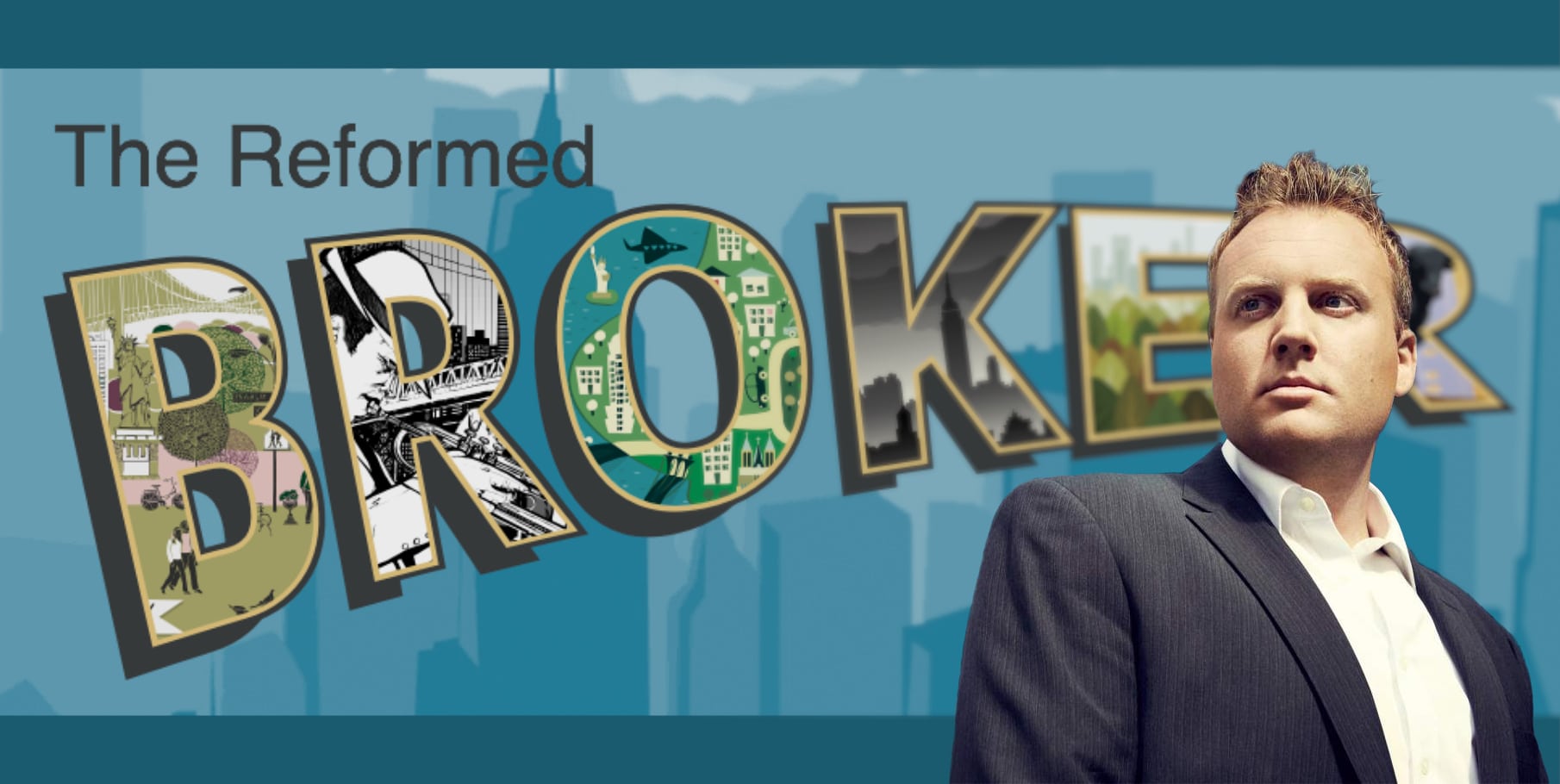
I spent a whole bunch of time this fall and winter taking calls from young financial advisors. I try to schedule this stuff on Friday mornings when things are a little quieter for me. They DM me or email me and I just say yes. I have 15 minutes for any kid reading my stuff who is trying to improve or get ahead in the industry.
A lot of the young advisors I talk to are under the impression that they should graduate college and immediately open up their own firm and start giving financial advice to other people their own age. I try to be as honest as I can in telling them that they would be better off getting a job working for a practitioner or firm where there’s already a lot of experience or success that they can learn from. They don’t always want to hear that, but I didn’t want to hear anyone’s guidance either when I was 23, so I get it. I spent a decade banging my head against a wall before I decided to let the opinions of successful people in.
Anyway, I give them a lot of credit for having the courage and the conviction to go for it. It might work out or it might be a mistake, depending on the person and their circumstances. I guess you gotta learn from your own successes and failures, in the end. There’s no other way to do it.
But there are some things you can learn by listening to people who know what they’re talking about. Failing your way to success need not be a blindfolded endeavor. So I try to share a couple of practical things with each young advisor who comes to me with questions.
The first thing I tell them is to talk less and listen more. I don’t know if this is a generational thing or they’re just nervous to talk to me or what, but most of these conversations begin with me getting machine gunned to death with someone’s line of shit right out of the gates. Bang bang bang bang bang bang bang bang bang bang bang bang bang bang bang bang…bang…bang bang bang bang…
I’m thinking to myself, “Oh my god, take a breath, kid.”
Maybe I sounded that way in my twenties too – being excited, feeling like everyone wanted to hear every thought I had on every subject under the sun. I don’t remember.
So I give them the best advice I can think of for building a practice in financial advice and developing client relationships. First of all, I says, “You don’t even know what the f*** you don’t know.”
It’s important for them to understand that no one is going to look at them as though they’re a financial expert in their twenties, so forget about trying to play that part. Instead, focus on being helpful. It’s more realistic that you’ll be seen as a helper than an expert, and a helper is actually what most people are looking for.
In time, and with experience, you will become more accepted as an expert. For now, it’s better to present yourself as a helper who knows enough and then also knows where to find the rest of the information that might be needed. “That’s a great question, I don’t have the answer offhand but I will find out for you,” is honest and perfectly reasonable in the realm of financial advice.
But more than this, I tell them to ask questions and listen to the answers. “Don’t machine gun the next prospective customer you meet the same way you assaulted me.” They laugh. They know.
Listening is a critical skill. Empathy is an advisor superpower. How can you know how to solve someone’s problem if you don’t give them a chance to explain it to you? Or you don’t focus on drawing it out of them? Nobody came to you because they had some free time and wanted to have a casual conversation with a financial advisor. They came to you because something is bothering them. They’re unsure of something. They’re nervous about the future. They are afraid of making mistakes. They will tell you exactly what you need to know in order to help them if you let them speak. They want to be heard. Even if you think you already have the answer halfway through their story, let them finish the story. Instant answers do not alleviate the desire to have the conversation and say the things out loud.
So shut up. You don’t actually know anything. You have book knowledge. Tax code knowledge. Clerical knowledge. Big deal. Everyone in the industry has that. What you lack is people knowledge. Life experience. You don’t have that yet. Listening to others helps you gain that. This is the important part, it’s happening now.
Listen to your potential new client. Let them speak. Let them feel seen and heard. The diagnosis can wait. You are not a magic f***ing eight ball. You are there to be a facilitator of conversations and a sounding board.
If you’re doing most of the talking during an initial consult, the initial consult is already a failure. That monologue you’ve prepared about how great you are and how much you know is a slow motion trainwreck. I know, because I used to deliver that very same monologue myself. It’s a baby blanket. A crutch to lean on. Lose it. Stop talking, start listening.
And watch what happens next.
Leave a Reply